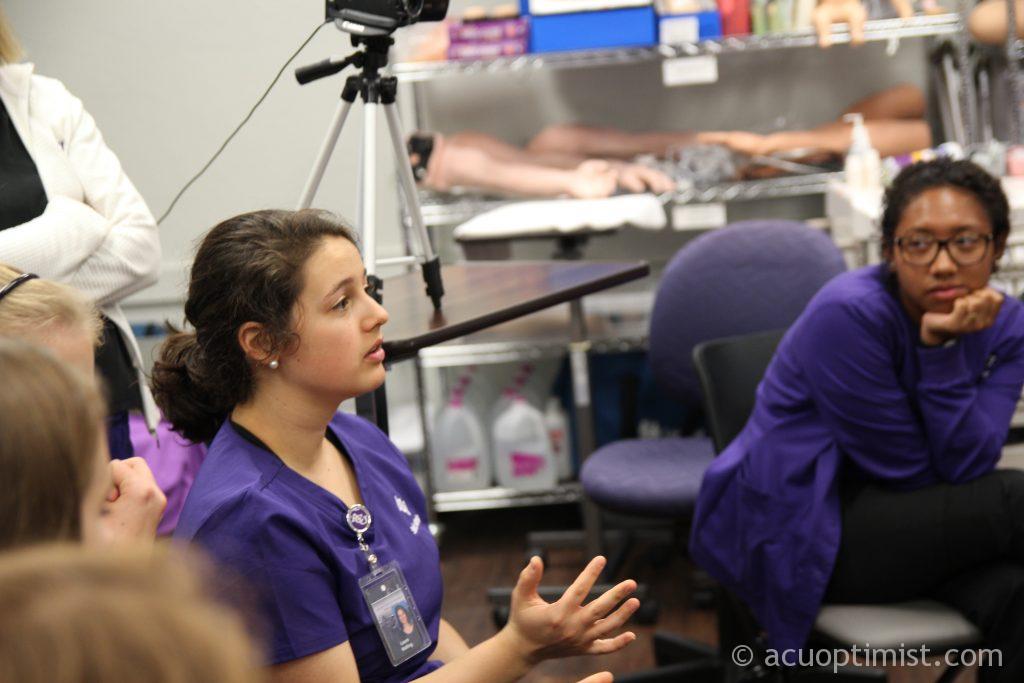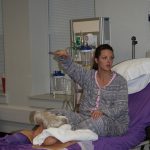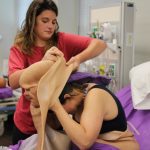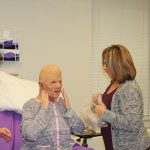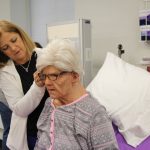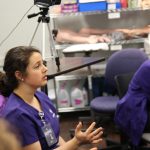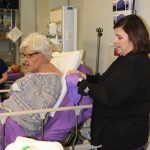The School of Nursing typically accepts students for the fall only, but in early October, the school accepted 33 students for the first class to start in the spring semester.
Dr. Becky Hammack, dean of nursing, said the school planned to start taking a spring entry class but the Texas Board of Nursing encouraged the school to wait until a few classes had graduated. The school started in 2013 and the first class graduated in 2015.
“That was our plan, that after we got real stable with our pass rates that we would start a second entry,” Hammack said.
To get into the nursing school, students must have a 3.0 GPA and have completed 60 hours of courses. Students also must have high scores in mathematics and science classes. Hammack said this allows students to take science classes and know for sure they want to study nursing before getting into the school.
“I think it’s better for our students to not really be locked-in,” Hammack said. “A lot of times at 18 a student may not know that that really is what they want. We don’t want anybody wasting their time and money. We only want people that love it to come.”
Last spring, the nursing school accepted about 50 students for the fall semester. But Lauren Maloy, junior nursing major from Prosper, Texas, was not one of them. She didn’t have a high enough GPA in several science classes to get into the school and she got put on a waiting list.
“I had worked so hard and I felt like I could do it,” Maloy said, “but ACU is growing and it seems like it’s more competitive to get in. I knew I could do better.”
Maloy decided to retake several science classes during the summer to raise her GPA. She did better in those classes, but when the fall semester started, she still didn’t get accepted. She didn’t want to wait another year to get in, because that would cost another year of university tuition. At that point, she had two choices: she could change her major and stay at ACU, or she could continue studying nursing by transferring to another university.
“I had a lot of doubt,” Maloy said. “Since high school I was always like ‘I want to do something medical,’ and the fact that I couldn’t get into the School of Nursing was very degrading and discouraging.”
On Oct. 3, she saw an email notification pop on her phone. The first few lines said “Congratulations,” and that was all she had to read to know she had finally been accepted.
“I started crying, and I Facetimed my dad and my mom,” Maloy said. “It was a happy day.”
Now Maloy will be able to graduate just one semester later than expected in December 2019. She said she wants to become an operating room nurse and possibly study to become a nurse practitioner.
Before 2015, the university formed a consortium school with McMurry University and Hardin-Simmons University first called the Intercollegiate School of Nursing and later called Patty Hanks and Shelton School of Nursing. Hammack said ACU usually had about 40 students at the consortium, but in 2010 ACU started pulling away. Hammack helped Marsha Strong establish the school and by 2013 ACU’s School of Nursing took residence on campus in the Zona Luce Building.
The Zona Luce building was named for John and Zona Luce according to this plaque located in the building.
Zona Luce was one of the first six buildings on campus and had been the home of the Department of Agricultural and Environmental Sciences since 1987. To accommodate three groups of nursing students in the building, Hammack said the school will have to do more evening classes. She tries to fit all classes in the building rather than using classrooms in another building because most of the nursing classes are three or four hours long and wouldn’t fit the schedule of other departments.
The school also faces the challenge of accommodating students for clinical shifts at local hospitals which also have to make room for nursing students from McMurry, Texas Tech University School of Nursing, Hardin-Simmons, and Cisco College.
I think there are more and more people going into nursing because there’s a huge shortage still,” Hammack said. “No matter where you go in this world, you can get a job and you can make a decent living and that’s important for people.”
The first class graduated in 2015 with 48 students, 97 percent of whom found jobs within six months of graduating. About 91 percent of the first graduates passed the test to become a certified nurse, called the National Council Licensure Examination (NCLEX), on their first time taking the test. This is higher than the Texas average of 87 percent and the national average of 84 percent. The school offers tutoring four days a week, which Hammack said is unique for a nursing school to do. This allows athletes to succeed in the program which is not typical for nursing schools.
“We work with our athletes,” Hammack said. “It’s not necessarily an easy thing to do, but we’re glad that they’re part of our university. It’s hard for the student, but it has worked out.”
Hammack said the school hopes to have a master’s degree program by January of 2019.
- Megan Steele, instructor of nursing, prepares to put on prosthetics for the Mask-Ed nursing class. Photo by Haley Remenar.
- Steele’s daughter helps her put on prosthetics for the Mask-Ed nursing class. Photo by Haley Remenar.
- Megan Steele, instructor of nursing, puts on prosthetics for the Mask-Ed nursing class. Photo by Haley Remenar.
- Megan Steele, instructor of nursing, wears prosthetics for the Mask-Ed nursing class. Photo by Haley Remenar.
- Laura Walling, junior nursing major from Abilene, asks a question during Mask-Ed class. (Photo by Haley Remenar)
- Priscilla Wyatt, instructor of nursing, puts on gloves before demonstrating nursing skills in the Mask-Ed class. Photo by Haley Remenar.
- Ajahcia Powell, junior nursing major from Abilene, listens to instructors during the Mask-Ed class. Photo by Haley Remenar.
Alum from first nursing class pursues Master’s
Alicia Bartholomee graduated from the School of Nursing’s first graduating class in 2015. Now she works in the orthopedic neurology unit at Midland Memorial Hospital.
Even though the nursing school had just started, Bartholomee, Adams at the time, said she felt excited to be a part of something new.
We were guinea pigs,” she said, “the first ones to try out the system.”
Bartholemee wanted to study English but changed her major to nursing right before coming to the university. She had read a book about medical missions that sparked her interest in the medical field.
“I’m more of a hands on person,” Bartholemee said. “I like to know that what I’m doing is making a difference.”
The nursing school prepared her for the NCLEX with intensive courses, but she said she didn’t think the clinicals prepared her to be a nurse as much as they should. When she would arrive at a local hospital for clinicals, she would have a different nurse to shadow each shift. Some of the nurses, called preceptors, weren’t as passionate about teaching as others, Bartholomee said. This made working difficult after she graduated.
“As a new grad I was really awkward on the floor,” she said. “There were a lot of basic skills I hadn’t really mastered yet.”
Bartholomee gave the nursing school feedback about it and said she felt like her professors were accepting of feedback. She also said she had a good relationship with many of her professors.
Now Bartholomee is studying to become a nurse practitioner at Angelo State University.
Volleyball player attacks nursing school challenge
At every school she considered attending, Corinne Grandcolas asked the same question: “Can I play volleyball and study nursing?”
The answer was always, “No,” until she visited ACU for a volleyball camp.
“It wasn’t a ‘No,’ it was a ‘Give it your best shot, we’re going to support you,'” Grandcolas said. “It’s not an easy major, and it’s just a full-on demand and they know that.”
Many schools do not allow student athletes to study nursing because the high demand both programs put on students. Nursing school would bring challenges like long clinicals and hours of studying, while volleyball would challenge her with early morning practices, late nights of traveling and many missed school days because games took place on Thursday or Friday nights.
I was prepared going into nursing school but it was going to be a battle to stay in,” Grandcolas said.
Now a senior, Grandcolas plays right side/middle blocker and is nearing the end of nursing school. The nursing school provided a mentor for Grandcolas named Ms. Floyd. She acted as Grandcolas’ nursing “coach,” helping her study or catch up on classes she missed because of tournaments. The team could be gone for as long as a week for some tournaments.
“You cannot be independent in nursing school,” Grandcolas said. “That’s definitely a shock to your ego when you think you know it all and you think you’re prepared, when in reality I lean on my classmates on a daily basis. They are all such good friends now because of it.”
Grandcolas said she thinks being an athlete will help her be a good nurse because she learned how to work on a team and handle pressure well. Just as her volleyball team works together with a goal of becoming conference champions, nurses work together to keep patients healthy and safe.
Grandcolas also pledged the women’s social club Ko Jo Kai.
“I don’t want to just be an athlete, and I don’t want to just be a nursing student,” Grandcolas said, “I want to make the best of a college experience that I can.”

